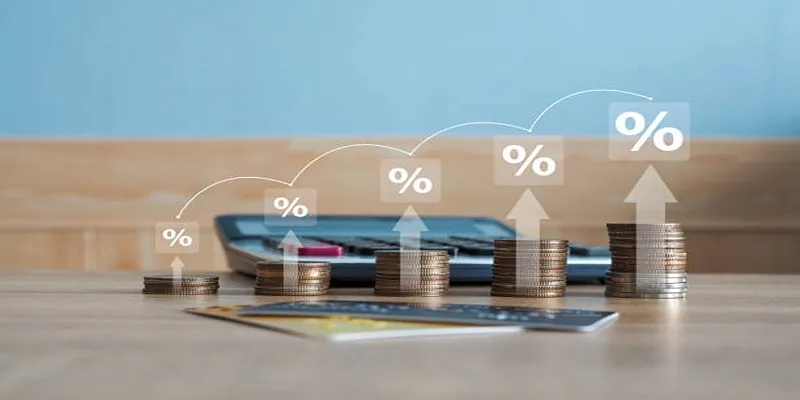Fed Rate Hikes and Stocks: What Investors Need to Know
When the Federal Reserve raises interest rates, it can significantly impact the stock market. These rate hikes make borrowing money more expensive for businesses and individuals, potentially slowing down spending and investment. For companies, this might mean lower profits, and for investors, it often leads to fluctuating stock prices. Understanding how rate hikes impact the market is crucial for making smart financial decisions. This article will explain the basics in simple terms to help you stay informed.
What Are Fed Rate Hikes?

The Federal Reserve, the central bank of the United States, was established in 1913. It not only controls interest rates but also issues monetary policies. If the economy is strong and inflation is a concern, the Federal Reserve will raise interest rates to slow the economy. Conversely, during an economic downturn, they will reduce interest rates to promote borrowing and spending.
The federal funds rate, also known as the target rate, is the interest rate banks use when lending to each other for overnight operations. It serves as a reference rate for other rates introduced in the market.
How Fed Rate Hikes Affect the Economy
When the Fed raises interest rates, borrowing becomes more expensive for businesses. This leads to a decrease in business investment and consumer spending, as companies may decide to postpone expansion plans or cut back on projects due to increased borrowing costs. As a result, this can slow down economic growth.
Rate hikes can also impact consumers by increasing mortgage rates, making it more difficult for individuals to buy homes or refinance existing mortgages. Higher interest rates also lead to higher credit card and car loan payments.
Direct Effects on the Stock Market
The stock market can be directly affected by Fed rate hikes. When interest rates rise, investors may question whether the higher borrowing costs will impact corporate profits and overall economic growth. This uncertainty often leads to decreased stock prices as investors become more cautious and may sell off shares.
Another direct effect of rate hikes is seen in dividend-paying stocks. These stocks are typically desired for their steady income streams, but with higher interest rates, bond yields become more attractive to income-seeking investors. As a result, dividend-paying stocks may experience a decline in demand and a drop in price.
Long-Term Effects
While interest rates may fluctuate, multiple consecutive rate hikes over an extended period can have lasting effects on the economy and stock market. Higher interest rates can lead to slower economic growth, impacting corporate earnings and stock prices. It may also become more difficult for businesses to borrow money for expansion or investment, potentially hindering overall economic growth.
Investor Behavior During Rate Hikes
Rate hikes can also influence investor behavior. Some investors may choose to sell stocks and move their money into safer investments, such as bonds, to protect themselves from potential market volatility. This shift in investment allocation can contribute to a decline in stock prices.
On the other hand, some investors may see rate hikes as a sign of a strong economy and continue investing in the stock market. Companies with strong financials and low levels of debt may still perform well during rate hikes, making them attractive investments for some investors.
How to Navigate Rate Hikes as an Investor

As an investor, it is essential to understand how Fed rate hikes can affect your portfolio and make informed decisions. Here are some tips for navigating rate hikes:
- Stay diversified: Diversifying your investments across different asset classes can help reduce risk and protect against market volatility.
- Keep a long-term perspective: While rate hikes may cause short-term fluctuations in the stock market, investing should be viewed as a long-term strategy.
- Do your research: Stay informed and conduct thorough research on the companies you are considering investing in. Look for businesses with strong financials and low levels of debt to potentially weather any rate hike impacts.
Mitigating Risks and Maximizing Opportunities
While rate hikes can negatively impact the stock market, there are also opportunities to mitigate risks and benefit from them. Here are some strategies to consider:
- Invest in bond funds: As interest rates rise, bond yields typically increase, making bond funds an attractive investment option.
- Look for companies with pricing power: Companies that can raise prices without losing customers may be better equipped to handle rate hikes.
- Consider international investments: Fed rate hikes do not necessarily affect other countries the same way. Consider diversifying your portfolio with international investments to potentially reduce risk during rate hikes.
Historical Examples of Fed Rate Hikes
Several instances show the impact of Fed rate hikes. In 2018, for example, the central bank hiked rates four times in response to a strong economy and potential inflation concerns.
Another notable period of rate hikes was during the late 1970s and early 1980s when inflation was a major concern. During this time, the Fed raised interest rates multiple times to curb rising prices.
Conclusion
Fed rate hikes can significantly impact the economy and investors alike. Understanding how they work and their potential effects is crucial for making informed financial decisions. By staying diversified, maintaining a long-term perspective, and conducting thorough research, investors can navigate rate hikes and potentially find opportunities to mitigate risks and maximize returns. It’s always wise to stay updated with the latest news from the Fed and monitor market trends when considering investment decisions.











